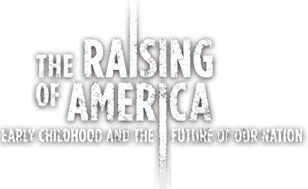Would Early Life Stress Stay in Their Bodies?
to watch purchased videos
Add to Your Favorites
Remove from Your Favorites
Clip Transcript
NARRATOR: The Wisconsin study recruited more than 500 expectant parents, mostly white and mostly middle class. By the time the babies were 4 months old, data showed a pattern starting to emerge.
Marilyn Essex, Director, Life Stress and Human Development Lab, University of Wisconsin-Madison:
They were stressed. They were stressed, you know, economically, they were stressed by having to work two jobs. That’s when they showed a lot less of that kind of sensitive and contingent behavior that, that is really, really important for moms to show with their babies to have healthy babies.
Jeffrey Armstrong, Researcher, Life Stress and Human Development Lab, University of Wisconsin-Madison:
On to location number two…
NAR: When children were 2 years old, the study widened its lens.
Marilyn Essex:
We began to turn our attention to say now let’s look at longer-term effects on the child. But we broadened it to say, let’s look at stress more generally.
Cory Burghy, Postdoctoral Fellow in Developmental Neuroscience, University of Wisconsin-Madison:
The things that we tapped were financial stress; we also look at role overload. One of the big issues is time and making sure you have time with your children and the resources to give your children a good life.
NAR: Would early life parental stress continue to have an impact on the parents’ children as they grew up? To find out the Wisconsin team measured the presence of cortisol in the children’s saliva when they were four.
Jeffery Armstrong:
We do have a freezer full of saliva samples.
Marilyn Essex:
We had what we called “family spit times” where the mom, the dad, and the child they would spit at the end of the day. And the kids thought this was a lot of fun.
NAR: Cortisol is a powerful hormone whose presence in saliva indicates activation of the stress response.
Cory Burghy:
What we see is that when moms are reporting a high level of stress in the first year of life…As their child gets older, if we look at their cortisol late in the day, we see that they have higher cortisol levels.
Marilyn Essex:
And then those kids with the higher levels of the stress hormone had more difficulties adjusting to school. Shy/upset toddlers cling to caregiver. They tended to be more anxious and kind of withdraw. They tended also to be more impulsive; they tended to be more aggressive. They had a wide variety of behavior problems.


